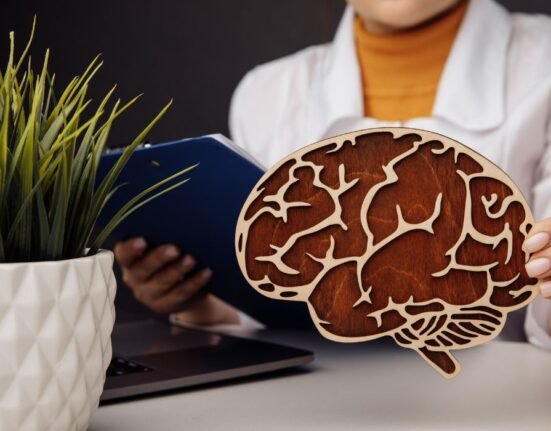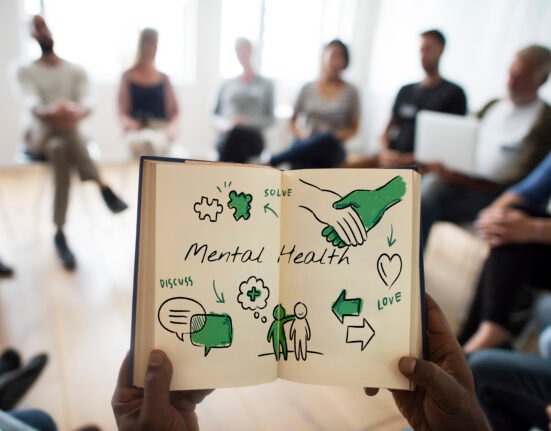Everyone requires sleep, yet its biological purpose remains unknown. Sleep influences practically every tissue and system in the body, including the brain, heart, and lungs, as well as metabolism, immunological function, mood, and disease resistance. According to research, prolonged sleep deprivation, or poor sleep quality, increases the risk of illnesses such as high blood pressure, cardiovascular disease, diabetes, depression, and obesity. Sleep is a complex and dynamic process that influences how you operate in ways that scientists are only beginning to grasp.
Prior to the 1950s, most people thought sleep was a passive activity in which the body and brain remained inert. According to Johns Hopkins sleep specialist and neurologist Mark Wu, M.D., Ph.D., sleep is a period during which the brain engages in a number of tasks necessary for living—which are directly related to the quality of life. Wu and other researchers devote a significant portion of their waking hours to learning more about these processes and how they affect both mental and physical health. Here’s a look at sleep experts’ significant (and often surprising) findings—as well as what they’re currently learning about the science of sleep.
Also Read: Weather Wonders: How the Elements Shape Your Mood and Sleep
Why You Need Sleep
If you’ve ever felt fuzzy after a bad night’s sleep, you’ll understand how important sleep is for brain function. First, adequate sleep is required for “brain plasticity,” or the brain’s ability to adjust to stimulus. If we don’t get enough sleep, we can’t digest what we’ve learned during the day and will have more difficulty remembering it later. Researchers also believe that sleep may aid in the clearance of waste products from brain cells, which appears to occur less efficiently when the brain is awake.
Sleep is also necessary for the rest of the body to function. When people do not get enough sleep, the risk of their health issues spikes. Depressive symptoms, seizures, high blood pressure, and headaches intensify. Immunity is impaired, increasing the risk of disease and infection. Sleep also influences metabolism: even one night of missing sleep might cause a prediabetic state in an otherwise healthy person. “There are many significant links between health and sleep,” Wu explains.
Sleep Stages
Sleep is classified into two types: rapid eye movement (REM) sleep and non-REM sleep (which includes three stages). Each is associated to distinct brain waves and cell activity. During a typical night, you cycle through all stages of non-REM and REM sleep multiple times, with the longer, deeper REM episodes coming closer to morning.
Also Read: Sleep Disturbance can affect brain functioning and mental health
Stage 1
Non-REM sleep is the shift from awake to sleep. During this brief phase of relatively light sleep (a few minutes), your heart rate, breathing, and eye movements slow, and your muscles rest with intermittent twitches. Your brain waves slow down from their normal daytime waking patterns.
Stage 2
non-REM sleep is a time of light slumber preceding deeper sleep. Your heart and breathing decelerate, and your muscles relax even more. Your body temperature decreases, and your eye movements cease. Brain wave activity slows, but is punctuated by short bursts of electrical activity. Stage 2 sleep accounts for a greater proportion of your repeated sleep cycles than any other stage.
Stage 3
The third stage of non-REM sleep is the deep slumber required to wake up feeling rejuvenated. It lasts longer during the first half of the night. During sleep, your heart rate and breathing slow to their lowest possible levels. Your muscles are relaxed, so it may be tough to wake you up. Brain waves become slower.
REM sleep begins roughly 90 minutes after falling asleep. Your eyes travel quickly from side to side beneath closed eyelids. Mixed frequency brain wave activity becomes more similar to that observed in wakefulness. Your breathing gets quicker and more irregular, and your heart rate and blood pressure rise to levels similar to while you’re awake. The majority of your dreams occur during REM sleep, however, some may occur during non-REM sleep. Your arm and leg muscles become briefly paralyzed, preventing you from carrying out your As you become older, you devote less time in REM sleep. Memory consolidation is believed to require both non-REM and REM sleep.
Also Read: Sleep breathing affects memory processing: Research
Sleep Mechanisms
Circadian rhythm and homeostasis are two internal biological mechanisms that work together to govern your wake and sleep times. Circadian rhythms regulate wakefulness, body temperature, metabolism, and hormone release. They regulate your sleep cycle, making you tired at night and prone to waking up without an alarm. The majority of circadian rhythms are controlled by your body’s biological clock, which runs on a roughly 24-hour cycle. Circadian rhythms coordinate with environmental cues (light, temperature) to determine the time of day, but they persist even when no cues are present.
Sleep-wake homeostasis monitors your need for sleep. The homeostatic sleep drive reminds the body to sleep after a set period and regulates sleep intensity. This sleep urge increases with each hour you are up, causing you to sleep longer and deeper following a period of sleep deprivation.
The Impact of Medical Issues, Stress etc:
Medical issues, drugs, stress, sleep environment, and what you eat and drink can all have an impact on your sleep-wake cycle. Perhaps the most significant influence is light exposure. Specialized cells in your eyes’ retinas process light and notify the brain whether it’s day or night, allowing us to advance or postpone our sleep-wake cycles. Light exposure might make it difficult to fall asleep and return to sleep after awakening.
Night shift workers frequently struggle to fall asleep and stay awake at work due to disruptions in their natural circadian rhythm and sleep-wake cycle. Jet lag occurs when people fly to a different time zone and their circadian rhythms fall out of sync with the time of day, resulting in a mismatch between their internal and external clocks.
Dreaming:
Dreaming is most common and powerful during REM sleep, but it can happen at any sleep state. However, dreams that occur during non-REM and REM sleep tend to follow distinct patterns. REM dreams are often more fanciful, immersive, or weird.
Brain Activity:
When brain waves are measured during sleep, obvious patterns emerge for each sleep stage. Brain waves slow down significantly early in non-REM sleep; nevertheless, in Stages 2 and 3, there are several short bursts of brain activity.
Also Read: Sleep Apnea: Definition, Symptoms and Treatment
In REM sleep, brain activity speeds up, resulting in significantly distinct types of brain waves. The increased brain activity is why REM sleep is considered as the state most connected with vivid dreams. REM sleep is intended to facilitate important cognitive capacities such as memory consolidation, while non-REM sleep, even with less brain activity, is thought to help maintain appropriate brain function while awake.
Sleep helps us stay healthy and function properly. It allows your body and brain to heal, rejuvenate, and re-energize. Side consequences of insufficient sleep include decreased memory and focus, weakened immunity, and emotional swings. If you are experiencing difficulties sleeping, consult your doctor or a sleep specialist. They can identify the underlying cause and help you sleep better.
Sleep also plays an important function in regulating the immune system, which is in charge of fighting off everything from the ordinary cold to more serious chronic illnesses like cancer. According to research, when you don’t get enough sleep, your body creates less infection-fighting antibodies, people who are sleep deprived are more prone to contract a cold virus, and immunizations may be less effective after a bad night’s sleep.
And due to all of the vital roles that sleep plays in the body, continuously receiving bad sleep can have some fairly serious repercussions.
References+
- https://www.healthline.com/health/why-do-we-sleep#takeaway
- https://www.nbcnews.com/better/health/what-happens-your-body-brain-while-you-sleep-ncna805276
- https://www.webmd.com/sleep-disorders/ss/slideshow-sleep-body-effects
- https://hopkinsmedicine.org/health/wellness-and-prevention/the-science-of-sleep-understanding-what-happens-when-you-sleep













Leave feedback about this